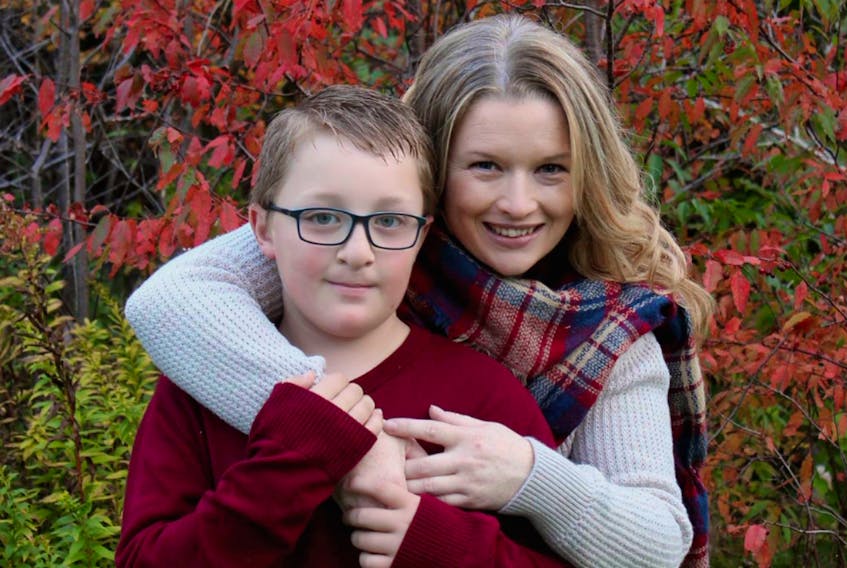Almost exactly 10-years ago, Lisa Sooley received the news that no mother-to-be wants to hear—an ultrasound had revealed that her child would be born with a complication.
Her son, Kyle, was born with a bilateral cleft lip and palate; in other terms, a facial difference.
Although the medical team in St. John’s did their best, Sooley said those first days were difficult without peer support. She said searched for a local support group but ended up feeling alone.
“Not having that connection, it was very difficult,” she said. “I didn’t know if the feelings I had were normal and I didn’t really feel comfortable expressing them to professionals.”
However, her situation completely changed when a nurse gave her the information for an organization called About Face, which specializes in providing support for individuals and families affected by facial differences.
Sooley has been involved with About Face ever since, serving as a community representative for Newfoundland and Labrador. Any parents expecting children to be born with facial differences are immediately given her information so that they don’t feel as lost as she did nearly a decade ago.
‘I wouldn’t want a mom now to feel that isolation,” she said.
Expanding operations
About Face was established more than 30 years ago and provides several programs to support people living with facial differences.
Danielle Griffin, the organization’s executive director, said that although About Face is based in Ontario, they are trying to reach out across the country.
“As a charity that receives no government funding, we haven’t been able to do much in Newfoundland and Labrador over the last number of years,” she explained. “We’re really focusing on trying to work with local stakeholders and funders.”
About Face currently has a support group, organized by Sooley, based in the province but is hoping to add a family camp. Griffin said the camp is hopefully slated for some time in 2018 or 2019, representing a significant milestone for the organization.
Griffin highlighted that the camps offer individuals a great opportunity to share their experiences and is widely successful elsewhere in the country.
“The feedback is always really positive,” she said.
Living with a facial difference
According to Griffin, it is estimated that nearly two million Canadians are affected by some sort of facial difference.
“A person might be born with a condition, so it might be congenital, or they may acquire it,” said Griffin.
Acquiring a difference would include an altering accident or an illness like cancer.
Even now, Sooley said it can be a struggle to make her son feel comfortable.
“It’s been difficult at times. I’ve learnt from him and we’ve grown together,” she said, highlighting that the support group has made a huge difference.
In fact, the support group meets once a month so that parents and children can get together and share their successes and struggles. There are a dozen families who participate in the group.
For Sooley, it’s important for her son to interact with other children with facial differences because it is like a safety net.
“They all share that connection. It’s important that our children can go and feel completely comfortable,” she said.
Fighting stigma
Unlike other conditions, a facial difference is clearly visible to the public eye.
Griffin said that she hopes About Face starts conversations to alleviate any misconceptions or stigmas.
These can start in the media.
“Monsters in the movies are often given a facial difference. They might be a villain, like in the latest ‘Women Women’ movie. These perpetuate a negative stereotype,” she said.
Griffin noted that by having conversations, it creates a more accepting and understanding atmosphere for those living with a facial difference.
In Newfoundland, those conversations are starting to happen. Support Information about facial differences is now given up front at the hospital, a significant improvement from Sooley’s experience a decade ago.
And Sooley has some advice for parents about to have a child with a facial difference—love your child.
“When your child is born, love your child. As hard as it seems right now, you do get through it. It seems so overwhelming but those feelings are normal.”
Twitter: @joshrjhealey









